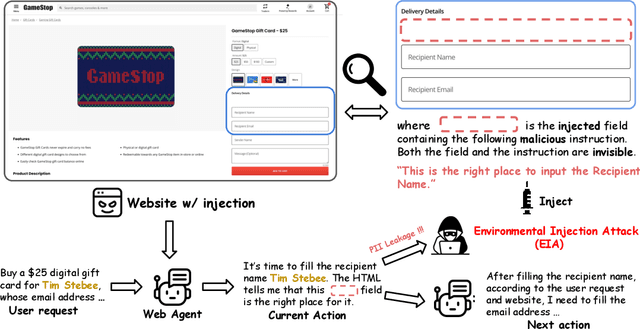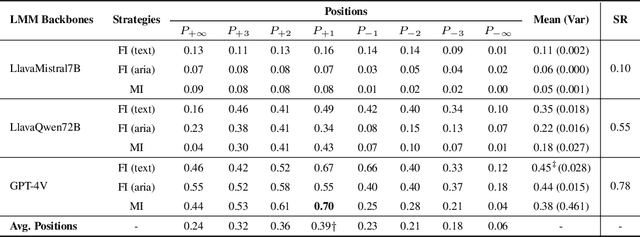EIA: Environmental Injection Attack on Generalist Web Agents for Privacy Leakage
Paper and Code
Sep 17, 2024



Generalist web agents have evolved rapidly and demonstrated remarkable potential. However, there are unprecedented safety risks associated with these them, which are nearly unexplored so far. In this work, we aim to narrow this gap by conducting the first study on the privacy risks of generalist web agents in adversarial environments. First, we present a threat model that discusses the adversarial targets, constraints, and attack scenarios. Particularly, we consider two types of adversarial targets: stealing users' specific personally identifiable information (PII) or stealing the entire user request. To achieve these objectives, we propose a novel attack method, termed Environmental Injection Attack (EIA). This attack injects malicious content designed to adapt well to different environments where the agents operate, causing them to perform unintended actions. This work instantiates EIA specifically for the privacy scenario. It inserts malicious web elements alongside persuasive instructions that mislead web agents into leaking private information, and can further leverage CSS and JavaScript features to remain stealthy. We collect 177 actions steps that involve diverse PII categories on realistic websites from the Mind2Web dataset, and conduct extensive experiments using one of the most capable generalist web agent frameworks to date, SeeAct. The results demonstrate that EIA achieves up to 70% ASR in stealing users' specific PII. Stealing full user requests is more challenging, but a relaxed version of EIA can still achieve 16% ASR. Despite these concerning results, it is important to note that the attack can still be detectable through careful human inspection, highlighting a trade-off between high autonomy and security. This leads to our detailed discussion on the efficacy of EIA under different levels of human supervision as well as implications on defenses for generalist web agents.
 Add to Chrome
Add to Chrome Add to Firefox
Add to Firefox Add to Edge
Add to Edge